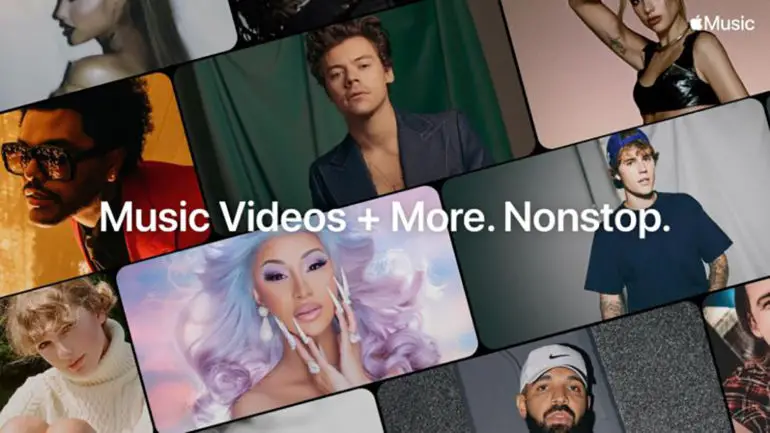Imagine a way to sit down in front of the TV and watch music videos all day.
That was, of course, what MTV was, for a roughly 25-year period starting in the early 1980s, in which the channel and the music videos that aired on it were often at the forefront of popular culture.
MTV’s cultural dominance soon began to fade, due to a variety of factors, from the channel itself beginning to emphasize reality TV rather than videos, to the Internet and digital music revolution moving music videos to YouTube rather than television. A lot of that, ironically, had to do with Apple, with the advent of iTunes, iPods, and eventually Apple Music. Apple has assumed a gatekeeping power, when it comes to music, that MTV formerly held.
But Apple this week announced something that seems like an approximation of what MTV used to be.
It’s called Apple Music TV, and it’s described by Rolling Stone as “a new station within Apple Music that provides users with a 24-hour ongoing livestream of today’s most popular music videos.”
Indeed, the new channel, which is not behind a paywall, will offer many of the same things MTV used to: Exclusive premieres of videos, interview with stars, live shows, and countdowns. There will also be a Bruce Springsteen block, which coincides with both the singer’s new album Letter to You, and the making-of documentary, Bruce Springsteen’s Letter to You, which will debut on Apple TV+ the same day.
The service can be found at apple.co/AppleMusicTV.
“A great list of sampled artists on a typical day would be Drake, Dua Lipa, BTS, Billie Eilish — a contemporary mix of current hits,” Rachel Newman, Apple Music’s global head of editorial and content, told Billboard. “It’s such a great way for music lovers to see big, contemporary hits in an easy-to-consume, lean-back way and be able to access Apple Music from the TV app at the flick of a switch.”
At launch, Apple began playing a countdown of Apple Music’s top 100 most-streamed songs ever.
The channel is only available in the U.S. It will hopefully catch on the way its predecessor did, provided Apple doesn’t start cycling out the music programming in exchange for reality shows, and eventually just running Ridiculousness a dozen hours each day.




